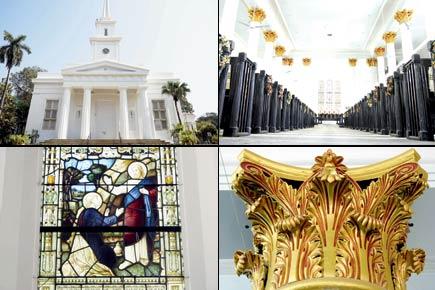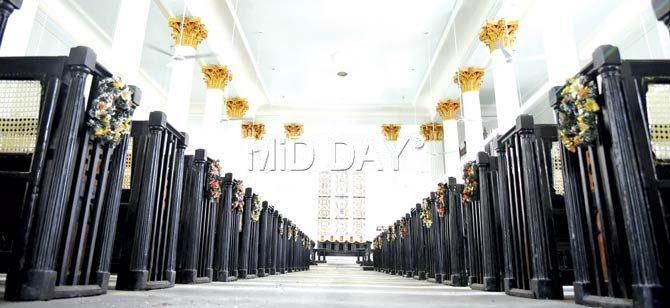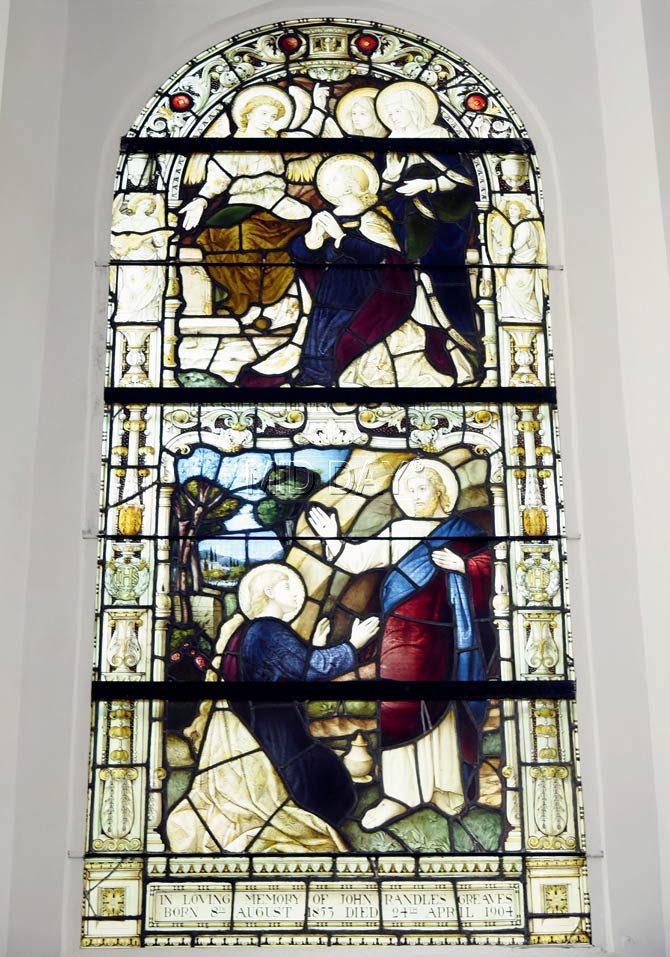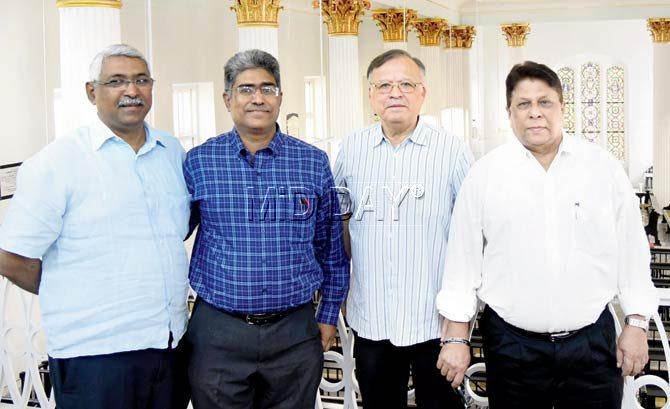With Phase II of restoration complete, Christ Church, Byculla's oldest in-operation church is set for a joyous new year


Christ Church was the last of the neoclassical churches built in pre-1862 Bombay. It's of similar vintage as the Town Hall that houses the Asiatic Society of Mumbai (Bombay). The interiors are invaluable heritage because of its cast iron fluted columns with Corinthian capitals, stained glass panels, burma teakwood furniture and lath ceiling plaster. Pics/Shadab Khan
ADVERTISEMENT
The early 1800s must have been a heady time for the Byculla resident. Wide roads, palatial mansions, a racecourse, the swish Byculla Club. It was emerging as the 'it' neighbourhood outside of Fort. Around then, as part of a church building programme that Governor Montstuart Elphinstone (1819-27) initiated, plans to construct Christ Church in Byculla took shape. Built at the cost of R17,000, it was open for worship on August 10, 1833 but consecrated in 1835.
When we stepped into the restored interiors of the neoclassical church, to meet its conservation architect Vikas Dilawari, managing trustee Christopher Gomes, chairman of the trust Rudolf Woodman and administrator Charles Duckworth, it was easy to slip back into time.

The church is a ground floor structure built on a podium and flanked by four fluted Doric columns. Its architect is unknown. However, it's possible that Lt Colonel Dickinson was the architect (Bombay Engineers) along with Lt Colonel Jones. After Dickinson’s death, in 1932, a gentleman of Portuguese descent called Mr Augusto completed the construction
"The Governor preferred attending Sunday mass here instead of heading to St Thomas Cathedral in Fort since this location was close to his country home in Parel," reveals Dilawari. Even Bombay's most important citizen wasn't spared the vagaries of the commute.
The trio attached to the church are smiling. After all, Dilawari has just wrapped up Phase II of the restoration in time for Christmas. The bedecked tree and cheery décor are giveaways of the palpable excitement. "The stained glass repair and restoration are one of the highlights," adds Gomes, also an architect, who has been working closely with Dilawari's team. He draws our attention to the detailing in the panels behind the main altar and smaller altar.

The restored memorial plaques include the name of Sir Robert Grant - former Governor of Bombay - after whom Grant Road railway station was named
It's high noon. Beams of sunlight crisscross, striking patterns on the 12 fluted Corinthian cast iron columns and memorial plaques. "You'll spot the names of Governor Robert Grant, Chaplain James Duncan and several other distinguished gentlemen of the time," shares Dilawari.
This eight-month-long phase also included repairs to the West, East and North façades, and the roof. The church's original basalt flooring and furniture were also restored. "We wanted to make the coming generations feel proud of this legacy," declares Duckworth.

J Scott of Carlisle manufactured the three stained glass panels that are behind the main altar. The second heavily painted panel (above), dedicated to John Randels Greave (c. 1904), can be spotted to the left of the main altar when you enter the church
An hour has passed and we take their leave. In a week's time, on Christmas Day, 500-odd parishioners will sing inside its refurbished interiors. As if on cue, we hear strains of Coldplay's Sky Full of Stars being sung at a rehearsal for a Yuletide programme in the adjacent school ground. The Byculla of today beckons.

The 12 columns inside the church were shipped from England. A gift to the church, they were intended to be installed at the Town Hall's Grand Assembly Room

Christopher Gomes, Vikas Dilawari, Charles Duckworth and Rudolf Woodman
 Subscribe today by clicking the link and stay updated with the latest news!" Click here!
Subscribe today by clicking the link and stay updated with the latest news!" Click here!






